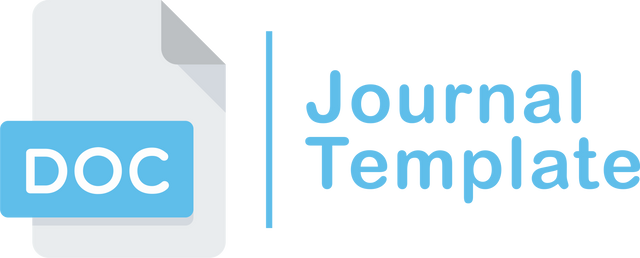Neurodiversity in Classroom Dynamics: Inclusive Pedagogical Frameworks for Neurodivergent Student Engagement
DOI:
https://doi.org/10.61667/xehj4936Keywords:
Neurodiversity , Inclusive Pedagogical Frameworks , Student Engagement , Cognitive Diversity , Educational AdaptationAbstract
The increasing recognition of neurodiversity in educational settings has catalyzed a transformative shift in pedagogical approaches, challenging traditional deficit-focused models and advocating for inclusive frameworks that cater to diverse cognitive profiles. With approximately 20% of children in the United States identified as neurodivergent, including conditions such as autism, ADHD, and Tourette's syndrome, there is a critical need to develop nuanced educational strategies that accommodate and celebrate cognitive diversity. The research objectives were twofold: (1) to investigate how inclusive pedagogical frameworks can effectively support the diverse learning needs of neurodivergent students, and (2) to explore systemic strategies that educational institutions can adopt to create supportive, adaptive learning environments. This study employed a comprehensive mixed-methods approach, integrating quantitative surveys, assessments, and qualitative interviews to capture both measurable outcomes and personal narratives. The research identified a significant gap in understanding how targeted interventions can be effectively tailored to meet the diverse needs of neurodivergent individuals. Key findings revealed a robust correlation coefficient of 0.826, indicating a strong positive relationship between inclusive teaching approaches and student success. The R-squared value of 0.683 suggests that 68.3% of the variance in student success can be explained by adaptive teaching methodologies.
The study highlights the importance of recognizing neurodiversity as a natural variation in human cognition, emphasizing the need for systemic changes in pedagogical practices, teacher training, and policy implementation. By prioritizing individualized approaches and embracing a strengths-based perspective, educational institutions can cultivate environments that not only accommodate but celebrate the diverse ways neurodivergent students engage with learning. Ultimately, this research contributes practical insights to transform educational practices, foster inclusivity, and support the holistic development of neurodivergent learners.
References
Azuka, C. V., Wei, C. R., Ikechukwu, U. L., & Nwachukwu, E. L. (2024). Inclusive Instructional Design for Neurodiverse Learners. Current Perspectives in Educational Research, 7(1), 56–67. https://doi.org/10.46303/cuper.2024.4
Cappiali, T. (2023). A Paradigm Shift for a More Inclusive, Equal, and Just Academia? Towards a Transformative-Emancipatory Pedagogy. Neveléstudomány. https://doi.org/10.3390/educsci13090876
Crompton, C. J., Alcorn, A. M., Cebula, K., & Fletcher-Watson, S. (2024). Neurodiversity Can Explain Differences in How People Experience Everyday Life. Frontiers for Young Minds. https://doi.org/10.3389/frym.2024.1434143
Cunff, A. Le, Martis, B.-L., Glover, C. M., Ahmed, E., Ford, R. M., Giampietro, V., & Dommett, E. J. (2025). Cognitive load and neurodiversity in online education: a preliminary framework for educational research and policy. Frontiers in Education, 9. https://doi.org/10.3389/feduc.2024.1437673
Ferreira, V. da S. (2024). Neurodiversidade na escola e a importância das práticas articuladas. Revista Nova Paideia, 6(3), 1017–1026. https://doi.org/10.36732/riep.v6i3.603
Frawley, T. J., Gavin, B., Valeur, C., & Morin, K. Van. (2023). Enhancing the nursing profession’s awareness of neurodiversity. Journal of Clinical Nursing. https://doi.org/10.1111/jocn.16902
Grant, R. (2024). Autistic and Neurodivergent Children and Adolescents. 159–165. https://doi.org/10.4324/9781003358565-17
Gujar, H. (2024). Unlocking Potential: The Strategic Advantage of Neurodiversity in the Workplace. Journal of Business and Strategic Management, 9(2), 1–7. https://doi.org/10.47941/jbsm.1798
Hamilton, L., & Petty, S. (2023). Compassionate pedagogy for neurodiversity in higher education: A conceptual analysis. Frontiers in Psychology, 14. https://doi.org/10.3389/fpsyg.2023.1093290
Hinton, C. A., & Hinton, S. F. (2024). Neurodiversity in Education and the Workplace. Advances in Religious and Cultural Studies (ARCS) Book Series, 471–492. https://doi.org/10.4018/978-1-6684-9897-2.ch019
Khalique, F., Khan, N., Sarna, S., & Saini, K. (2024). Diverse Minds, Infinite Potential. In Advances in human resources management and organizational development book series (pp. 96–108). https://doi.org/10.4018/979-8-3693-1938-3.ch006
Nascimento, J. B. do, Silva, A. G., Oliveira, L. G. de, Lima, O. D. S. F. C., & Lima, A. B. (2024). Educação Inclusiva E Neurodiversidade: Estratégias Pedagógicas Para A Inclusão De Alunos Com Distúrbios De Aprendizagem. IOSR Journal of Business and Management, 26(10), 1–12. https://doi.org/10.9790/487x-2610030112
Nwachukwu, E. L., Azuka, C. V., Wei, C. R., & Ikechukwu, U. L. (2024). Inclusive Instructional Design for Neurodiverse Learners. Journal of Digital Learning and Distance Education, 3(3), 1001–1009. https://doi.org/10.56778/jdlde.v3i3.324
Rosenblatt, K., Frates, A., & Jackson, H. (2023). Addressing Neurodiversity Within Educator Preparation. In Advances in higher education and professional development book series (pp. 25–53). https://doi.org/10.4018/979-8-3693-0163-0.ch002
Sousa, T. S. R., Silva, M. R. da, Silva, C., Silva, S. da, & Boas, B. C. F. V. (2024). Neurodiversidade Nas Escolas: Como Adotar Abordagens Pedagógicas Para Estudantes Neurodivergentes. IOSR Journal of Business and Management, 26(11), 11–16. https://doi.org/10.9790/487x-2611141116
Sutrisno, D., & Abbas, A. (2023). Fostering Critical Thinking through Integrating Edpuzzle in Blended Learning. Global Synthesis in Education Journal. https://gse-journal.net/index.php/gse/article/view/12
Sutrisno, D., Martina, M., Karsana, D., Nafi Annury, M., Adri, A., Damayanti, W., Hidayah, A. M. N., & Juliastuty, D. (2024). Semiotic Analysis of Psycholinguistic Strategies in Indonesian President Candidates’ Debates 2024: Unraveling Linguistic Signifiers and Mental Processes in Argumentative Discourse. Forum for Linguistic Studies, 6(5), 943–976. https://doi.org/10.30564/fls.v6i5.7251
Walters, A. S. (2024). Neurodiversity in children: Accommodate or celebrate? The Brown University Child and Adolescent Behavior Letter, 41(1), 8. https://doi.org/10.1002/cbl.30840
Wiklund, J., Tran, M. H., & Rahm, R. (2024). Neurodiversity and Entrepreneurship (pp. 283–309). https://doi.org/10.1007/978-3-031-55072-0_13
Xia, Y., Wang, P., & Vincent, J. (2024). Why we need neurodiversity in brain and behavioral sciences. Brain-X, 2(2). https://doi.org/10.1002/brx2.70
Downloads
Published
Issue
Section
License
Copyright (c) 2025 Global Synthesis in Education Journal

This work is licensed under a Creative Commons Attribution-NonCommercial-ShareAlike 4.0 International License.

















